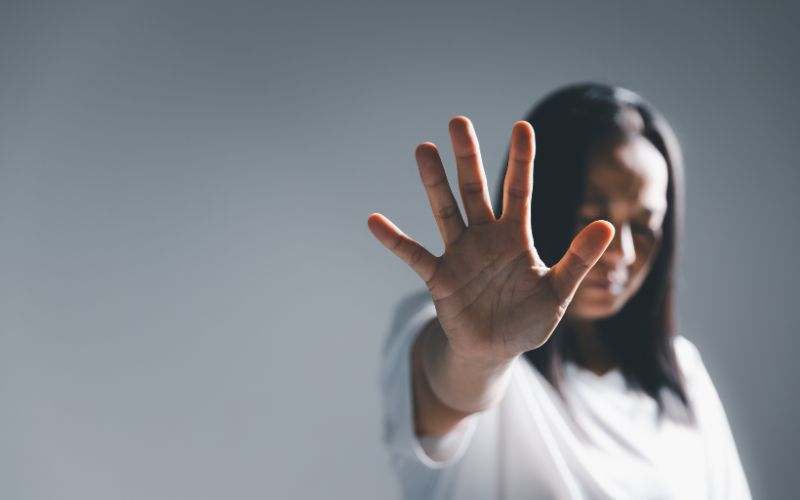
- Details
- By Kaili Berg
April is Sexual Assault Awareness Month (SAAM), a time to shed light on the pervasive issue of sexual violence within Indigenous communities.
Established in 2001, SAAM has been a vital platform for raising awareness, supporting survivors, and challenging societal norms that perpetuate sexual assault. Among the broader discourse on sexual violence, the plight of Native women and children often remains overlooked.
According to Amnesty International, American Indian and Alaska Native (AI/AN) women are 2.5 times more likely to be raped than non-Native women in the United States. One in three Native women will be raped in their lifetime. At least 86% of perpetrators of these crimes are non-Native men.
Statistics alone do not capture the actual depth of individual and familial historical trauma and oppression, including violence, experienced by tribal communities.
For more than two decades, thousands of Native women and children have suffered rape and sexual abuse due to U.S. laws and government policies concerning Native American Tribes, according to the National Indigenous Women’s Resource Center (NIWRC). Despite efforts to seek justice, survivors are met with denial and indifference.
At the root of this crisis lies the historical legacy of colonization and the formation of the United States, where sexual abuse of Native women was not only tolerated but also facilitated by governmental infrastructure. This legacy continues to haunt Native communities today.
“The connection between sexual abuse of Native women and colonization remains hidden from the public,” Lucy Simpson (Dine), Executive Director at NIWRC, said in a press release. “We must understand the systemic and structural foundation of the statistic that 1 of 3 Native women will be raped in her lifetime.”
To tackle sexual violence in Native communities, it's crucial to change how the government operates and revive the respect for women found in Indigenous cultures, according to NIWRC. In the past, Indigenous societies swiftly punished those who committed sexual violence.
SAAM encourages awareness to target the root causes of this issue, hoping to create a future where all women are safe, regardless of their background.
Below is more information about sexual violence against Native Americans and resources for victims:
- Indian Health Manual, Part 3, Chapter 29 Sexual Assault
- Centers for Disease Control and Prevention – Fast Facts: Preventing Sexual Violence
- National Sexual Violence Resource Center - NSVRC SAAM
- Get Involved: #30DaysofSAAMChallenge - National Sexual Violence Resource Center
- National Indigenous Women’s Resource Center – Sexual Violence Resource Center
- StrongHearts Native Helpline: Culturally-specific and confidential helpline for American Indians and Alaska Natives impacted by domestic, dating and sexual violence. Help, safety, and resources are available 24/7/365.
More Stories Like This
Chickasaw Nation Governor Bill Anoatubby leads groundbreaking for pediatric clinicCherokee Nation Eyes $4 Million Transitional Housing Program
Indian Health Service Reflects on 2025; Touts Facility Expansions, Workforce Development
Senate Committee on Indian Affairs to Host Hearng in Bills to Beneift Tribal Health Programs
Cherokee Nation Plans Reentry Housing Using Opioid Settlement Money


